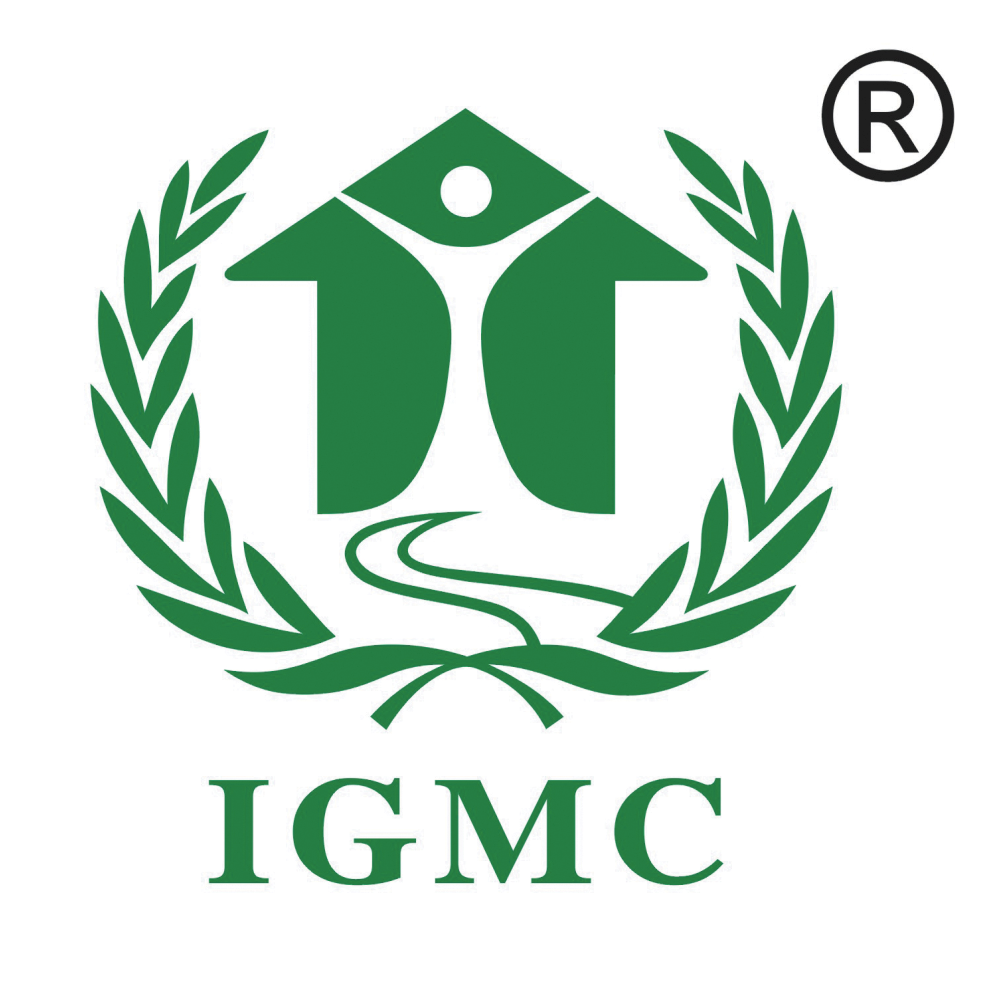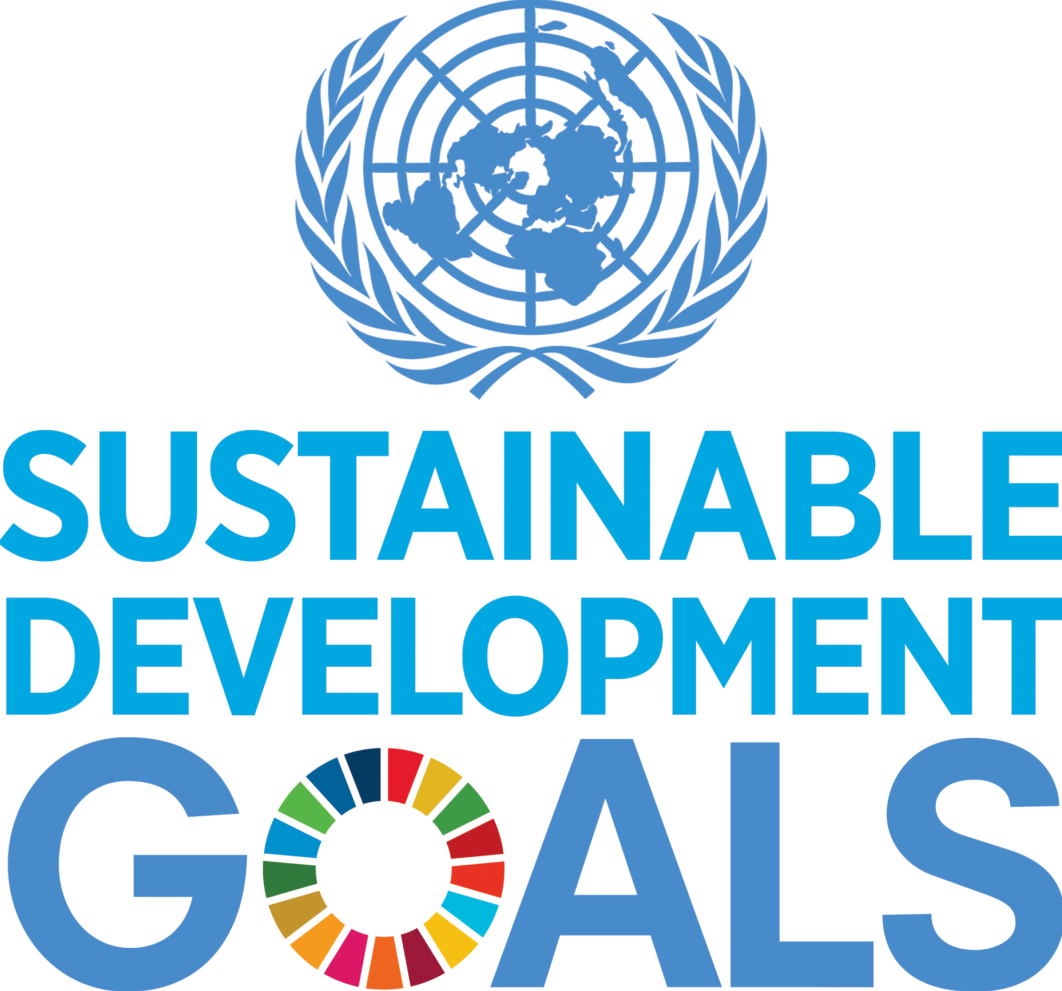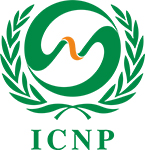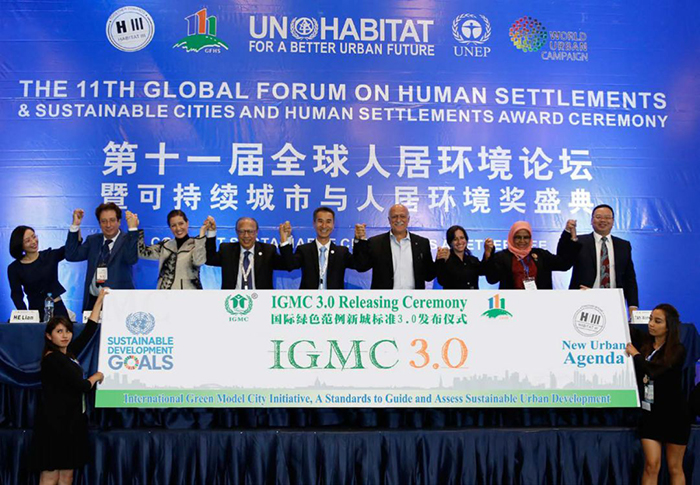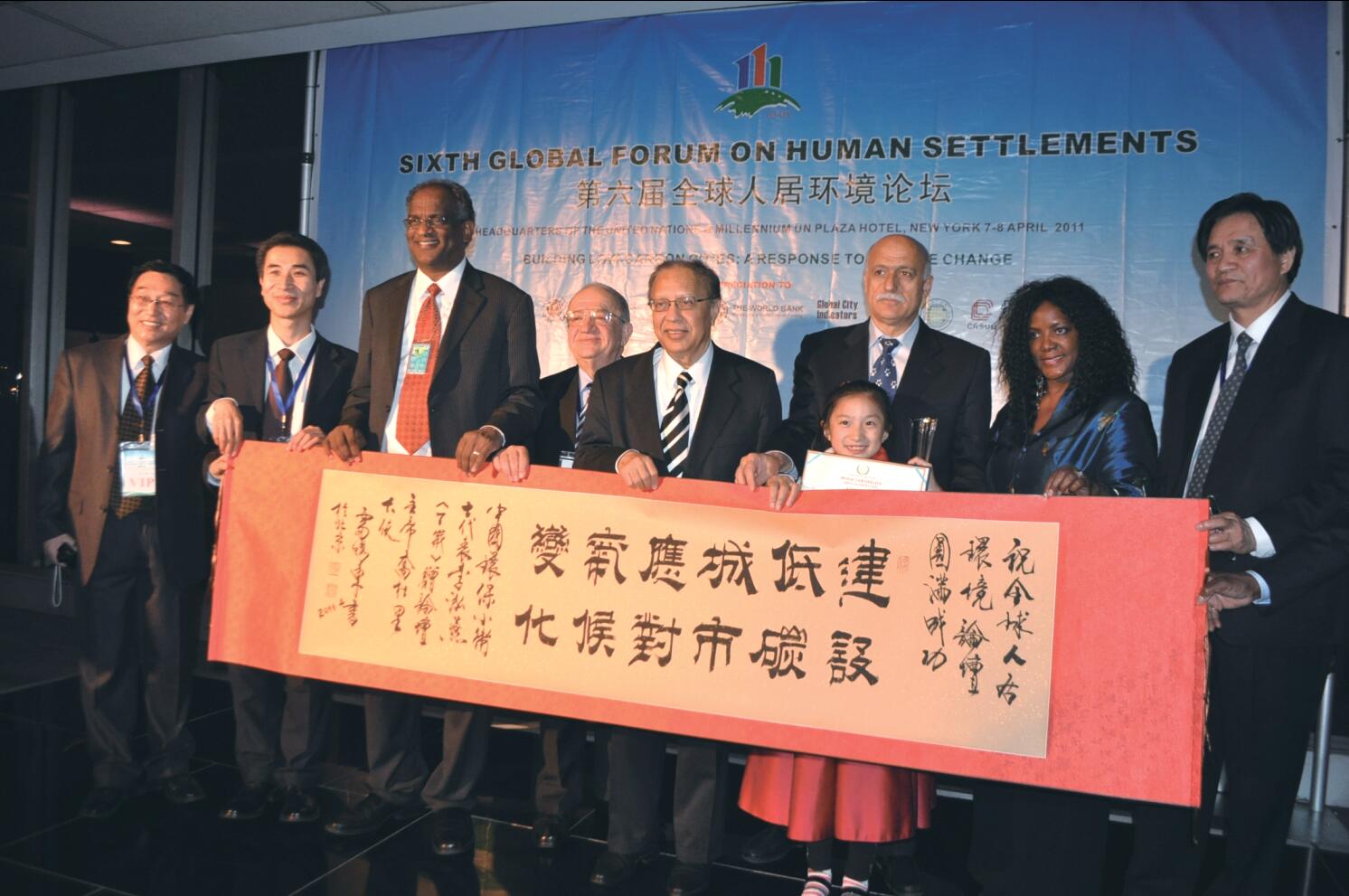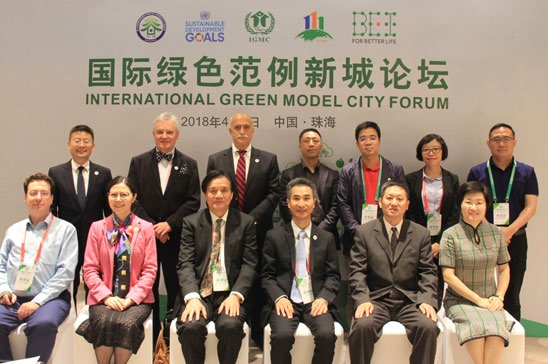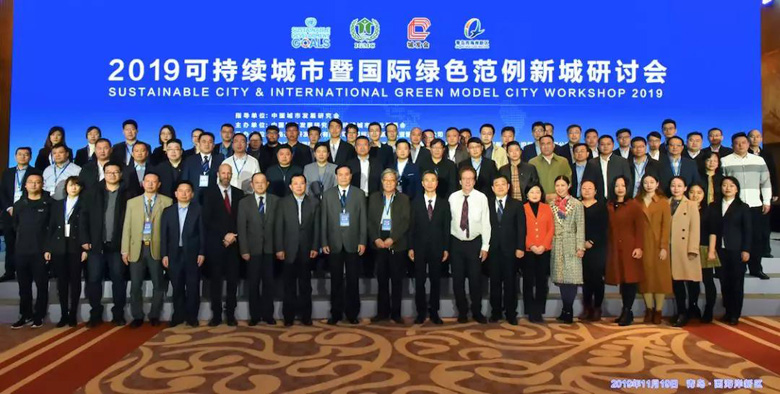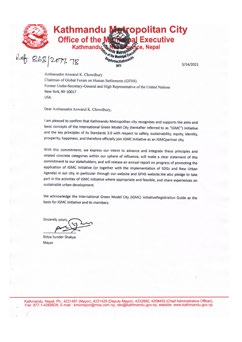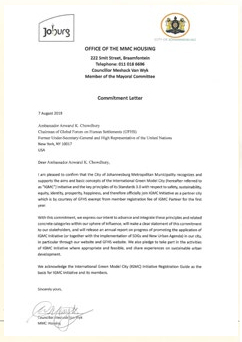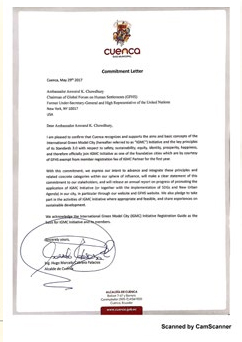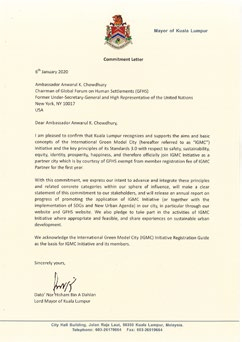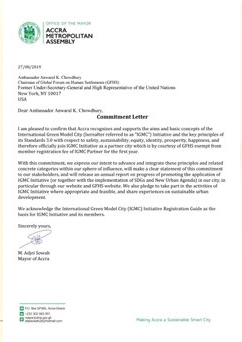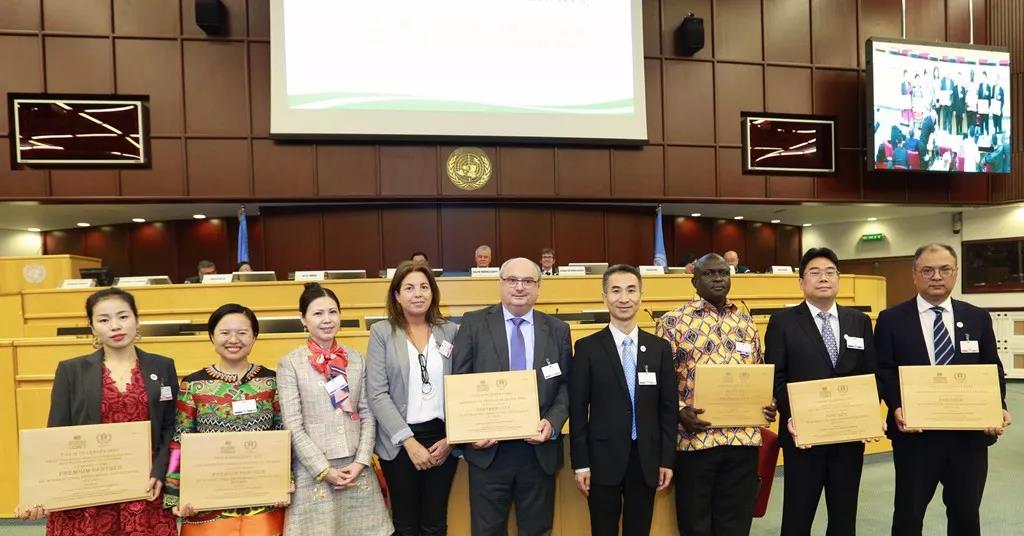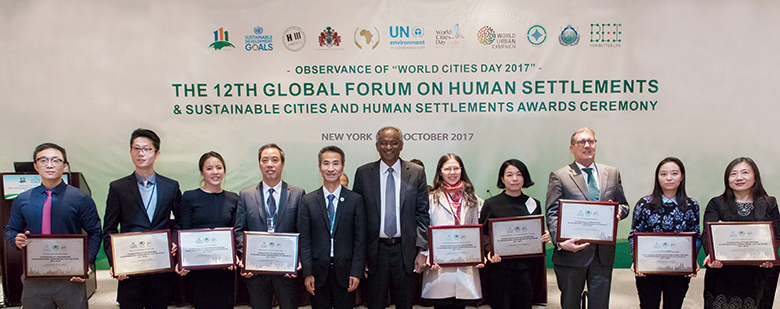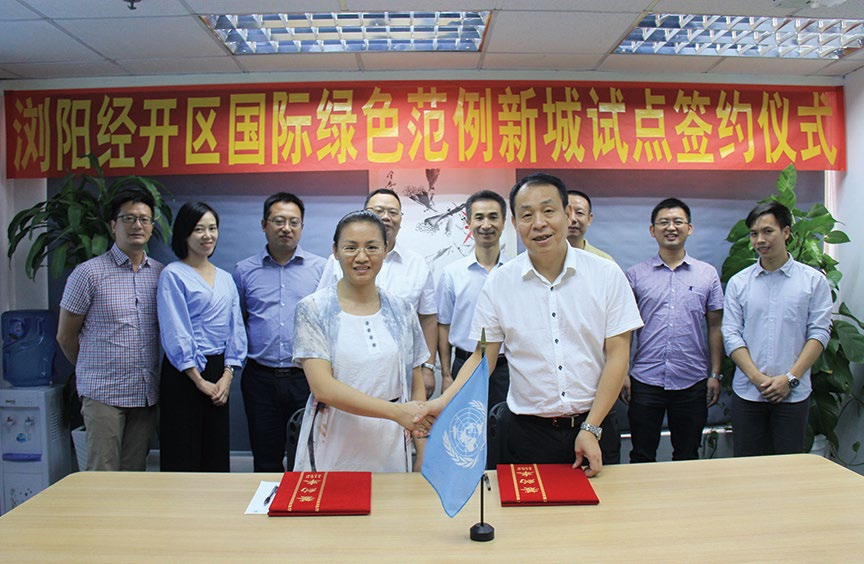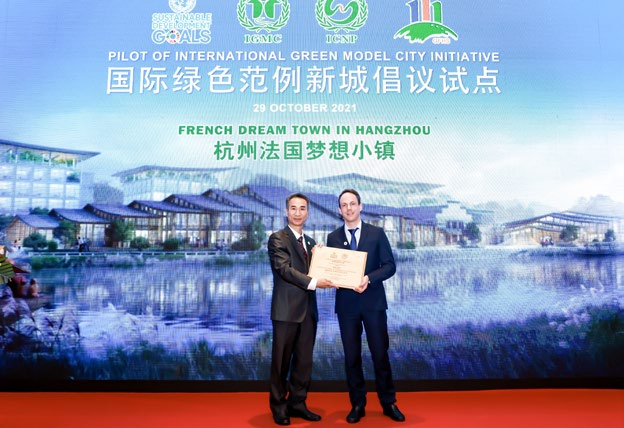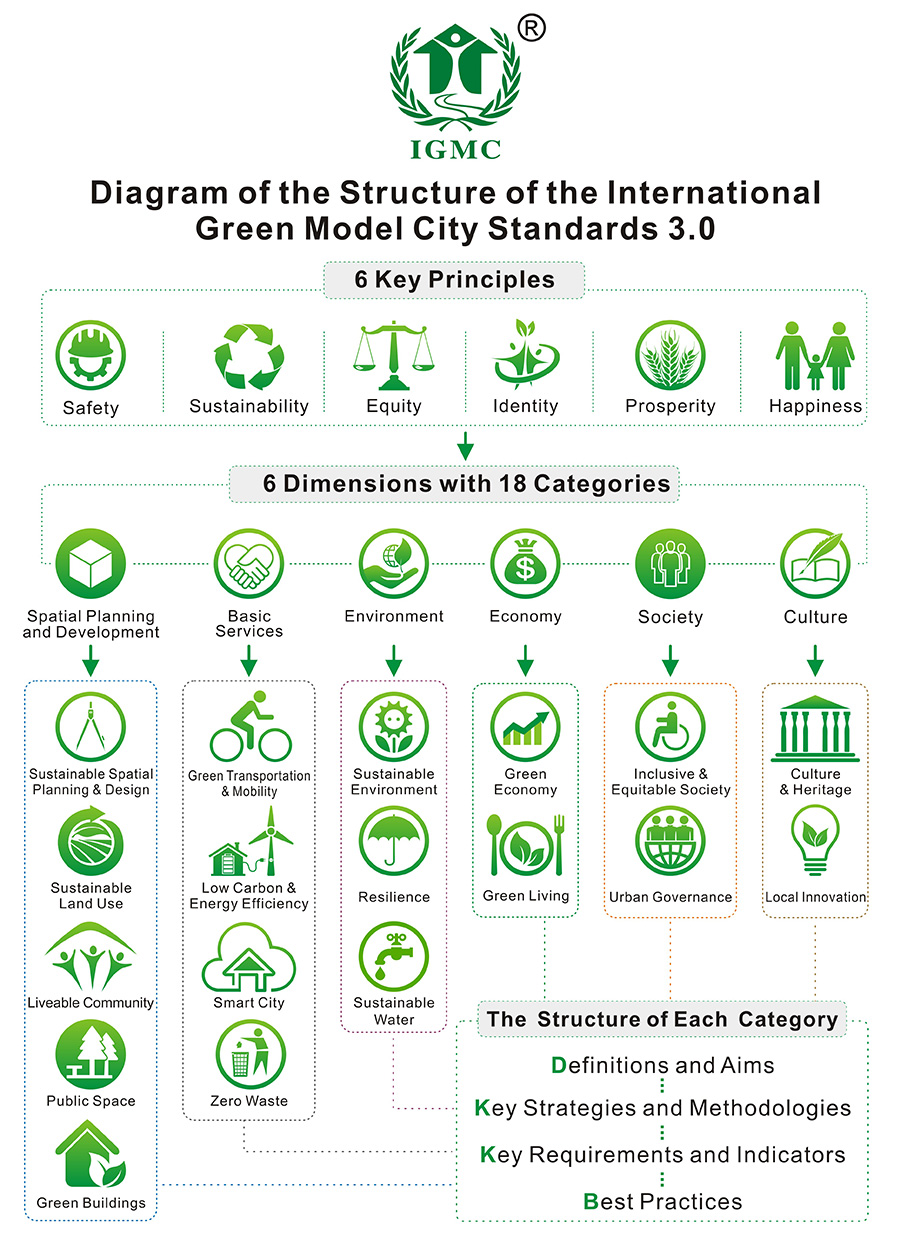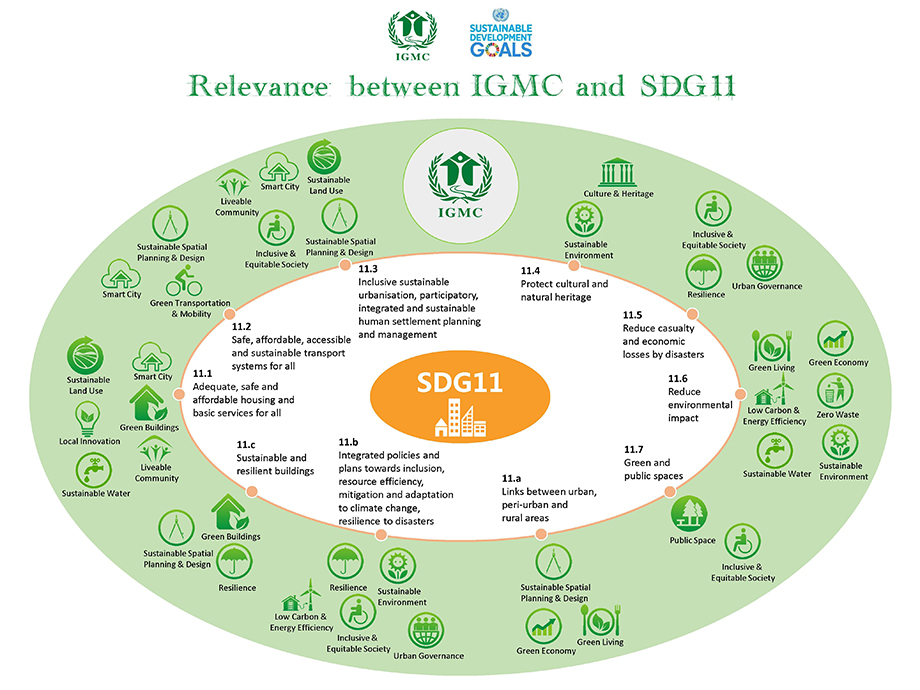GFHS
Committed to Sustainable Cities and Human Settlements for All
In Special Consultative Status with ECOSOC
Search
INTERNATIONAL GREEN MODEL CITY INITIATIVE
Promoting the Implementation of the 2030 Agenda for
Sustainable Development and Paris Agreement at Local Level
SAFETY • SUSTAINABILITY • EQUITY • IDENTITY • PROSPERITY • HAPPINESS
To provide a timely response to the enormous challenges arising from rapid urbanization, Global Forum on Human Settlements (GFHS) launched the “International Green Model City (IGMC)” Initiative at UN Headquarters in April 2011, in close collaboration with various international organizations including the United Nations Environment Programme and governments at national and local levels.
As a partnership initiative of Sustainable Development Goal 11, IGMC Initiative is an innovative global action plan for building greener cities characterized by zero waste and zero emission. The Initiative is dedicated to promoting the implementation of the 2030 Agenda for Sustainable Development, the New Urban Agenda and the Paris Climate Agreement. As of 2021, more than 40 cities and businesses in the world have joined the Initiative, forming a network for exchanges, sharing, interaction and cooperation.
Aims
IGMC Initiative aims to use IGMC Standards 3.0 as a set of advanced planning tool for assessing and guiding sustainable urban development and implementing pilots through providing innovative concepts, integrated strategies and methodologies, benchmarks and monitoring framework as well as demand- oriented solutions. Combining with other approaches, IGMC facilitates sustainable cities and human settlements for all, while creating a shared platform for its global partners and main stakeholders to build long-lasting collaborative partnership for sustainability.
IGMC Standards 3.0
The vision of "IGMC Standards 3.0" is rooted in the 2030 Agenda for Sustainable Development and the New Urban Agenda. IGMC Standards 3.0 is a set of advanced tool for assessing and guiding sustainable urban development.
The main role of IGMC Standards 3.0 is as following:
1. To assess efficiency, inclusiveness, sustainability, and resilience of existing built-up cities and urban areas, identifying opportunities for improvement and transformation.
2. To support governments in formulating policies and action plans with measurable goals, for the purpose of enhancing city’s competitiveness and supporting the local implementation of the SDGs.
3. To guide sustainable urban development projects with innovative concepts, integrated strategies, approaches, technology, indicators and monitoring framework, thus improving overall performance and effective investment.
4. To assess projects at planning and design phase, identifying gaps and opportunities for improvement and risk mitigation.
5. To strengthen the knowledge, capacity and capability of city managers, developers, planners, architects, engineers and citizens.
IGMC Initiative Partners
A group of well-known cities and companies have joined the IGMC Initiative, including Vancouver, Canada, Cape Town and Johannesburg, South Africa, Accra, Ghana, Mannheim, Germany, Kuala Lumpur and Seberang Perai, Malaysia, Quezon and Davao, the Philippines, Yangon, Myanmar, Katmandu, Nepal, Cuenca, Ecuador, Guiyang, Taizhou and Dezhou, China, Liuyang National Economic and Technical Development Zone, Jiande City and Wuyi County of Zhejiang Province, Qingdao West Coast New Area, China Railway Real Estate Group, Vanke, Country Garden, Mission Hills, Optiva Darna Group, among others. Some have been included as IGMC pilots.
Benefits of joining the IGMC Initiative
1. Accessing the full set of IGMC Standards 3.0 which provides guidance of creating context-specific action plans and policy options with measurable goals.
2. Using the IGMC Standards to evaluate the sustainability of existing urban areas.
3. Using the IGMC Standards to assess urban projects at the planning or designing stage, which helps identify challenges and
opportunities, mitigate risks and increase investment returns.
4. Accessing IGMC online rating system to do self evaluation and compare with peer cities.
5. Strengthening knowledge and capabilities through participating in relevant capacity-building events.
6. Implementing IGMC pilot as appropriate, setting examples of green transformation.
7. Building networks and partnerships for sustainability.
8. Enhancing brand value and maximizing business opportunities.
More information can be found in “International Green Model City Initiative Registration Guide” and “Cooperation Framework on International Green Model City Pilot”.(https://www.igmci.org/)
IGMC initiative was officially launched by GFHS at the UN headquarters, 8 April 2011
Releasing ceremony of IGMC Standards 3.0 during the Habitat III in October 2016, Quito, Ecuador, attended by UN senior officials, mayors and well-known experts.
Supported by MOHURD, the IGMC Forum of the 14 th International Conference on Green & Energy-Efficient Building was successfully held in Zhuhai, China in April 2018
Sustainable City and International Green Model City Workshop Held in Qingdao in November 2019
Commitment Letters from IGMC Initiative Partners: city of Kuala Lumpur, Malaysia, Johannesburg, South Africa, Accra, Ghana, Cuenca, Ecuador, and Katmandu, Nepal
IGMC Partner Award Ceremony was held at UN Conference Center in Addis Ababa, Ethiopia, September, 2019
IGMC Initiative Founding Partner Award Ceremony on“World Cities Day”, New York, 2017
Signing Ceremony for Implementing IGMC Pilot in Liuyang Economic and Technological Development Zone, August, 2017
GFHS Secretary General Lyu Haifeng presenting a plaque to Optiva Darna Group, the developer of IGMC pilot French Dream Town in Hangzhou, 29 October 2021




